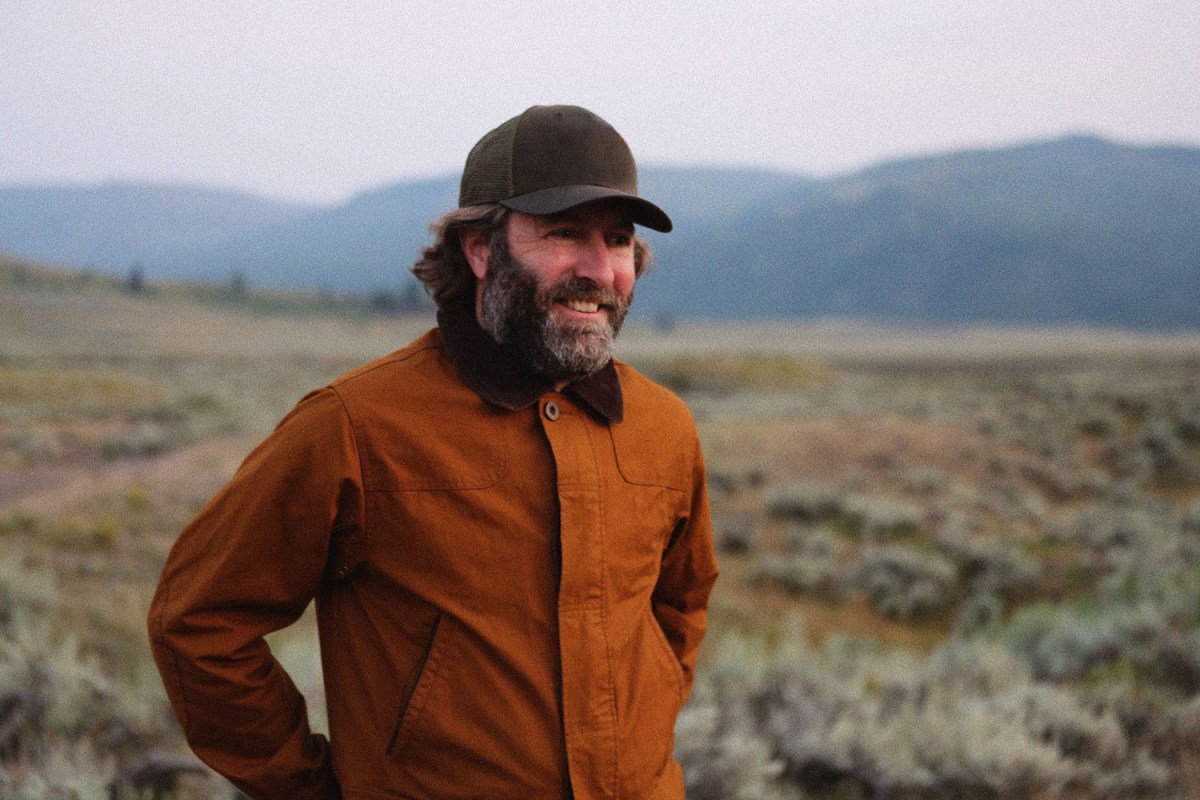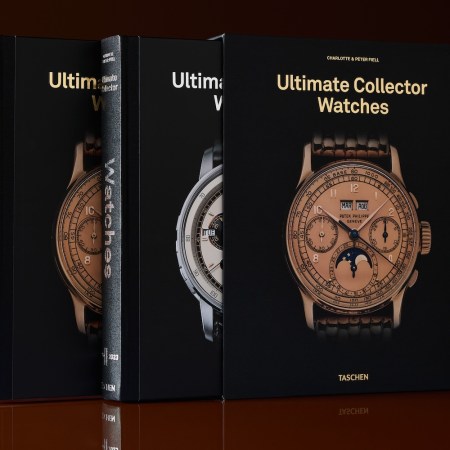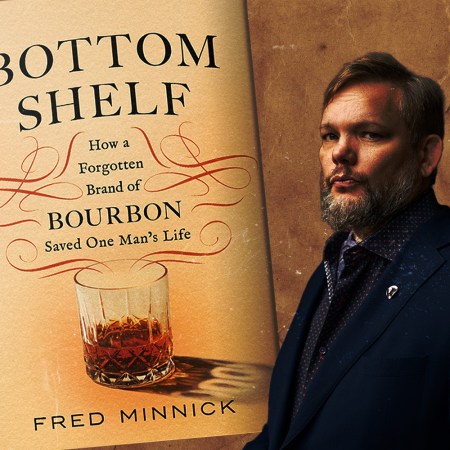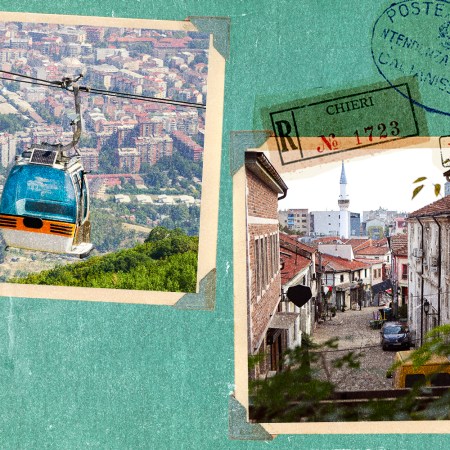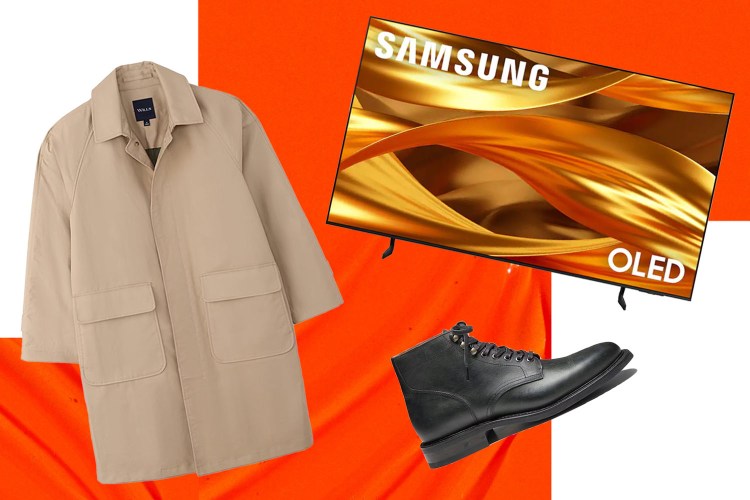I was trying to describe David Coggins to a friend recently and ended up arriving at the theory that Coggins deals in the evolution of wisdom. That is, he understands that accruing it is a twofold pursuit: you learn more about the world and your place in it with age, but you also have to continue cultivating the knowledge you’ve long held close. If you don’t use it, you lose it, so to speak. In his writing, one never gets the impression he’s trying to reinvent the wheel, but that’s sort of the point: the wheel we have works fine, and we should pay attention to it.
That’s probably a far too half-baked way of trying to explain that Coggins is an interesting guy who seems to live life at his own slow, deliberate, mindful pace. Hell, even the way he dresses, showing up to our Zoom call in his signature knit tie over a pale pink shirt with a herringbone blazer from Drake’s. He makes wearing these things look fun. He could be the spokesperson for Big Jacket and Tie, because that world is trying desperately to get consumers to care about their products in our I can wear sweatpants whenever I damn well like world. He tells me he overthinks things, but the more we talk the more I begin to wonder if maybe it’s something else; not that he overthinks, but more like he’s in a state of perpetually studying the world around him.
Take, for example, fly fishing. He dedicates thousands of words across hundreds of pages to the topic in his new book The Optimist. It isn’t another how-to guide on the subject, because the world doesn’t really need many more of those. Instead, it’s a meditation on the sport, the things Coggins has seen and felt on fishing trips to Wisconsin, the Bahamas, Patagonia, the U.K. and other parts of the globe. With his last two books, Men and Style (2016) and Men and Manners (2018), he served more as an editor and contributor, calling on a number of voices to take part in their creation. For The Optimist, it’s all pure, unfiltered Coggins.
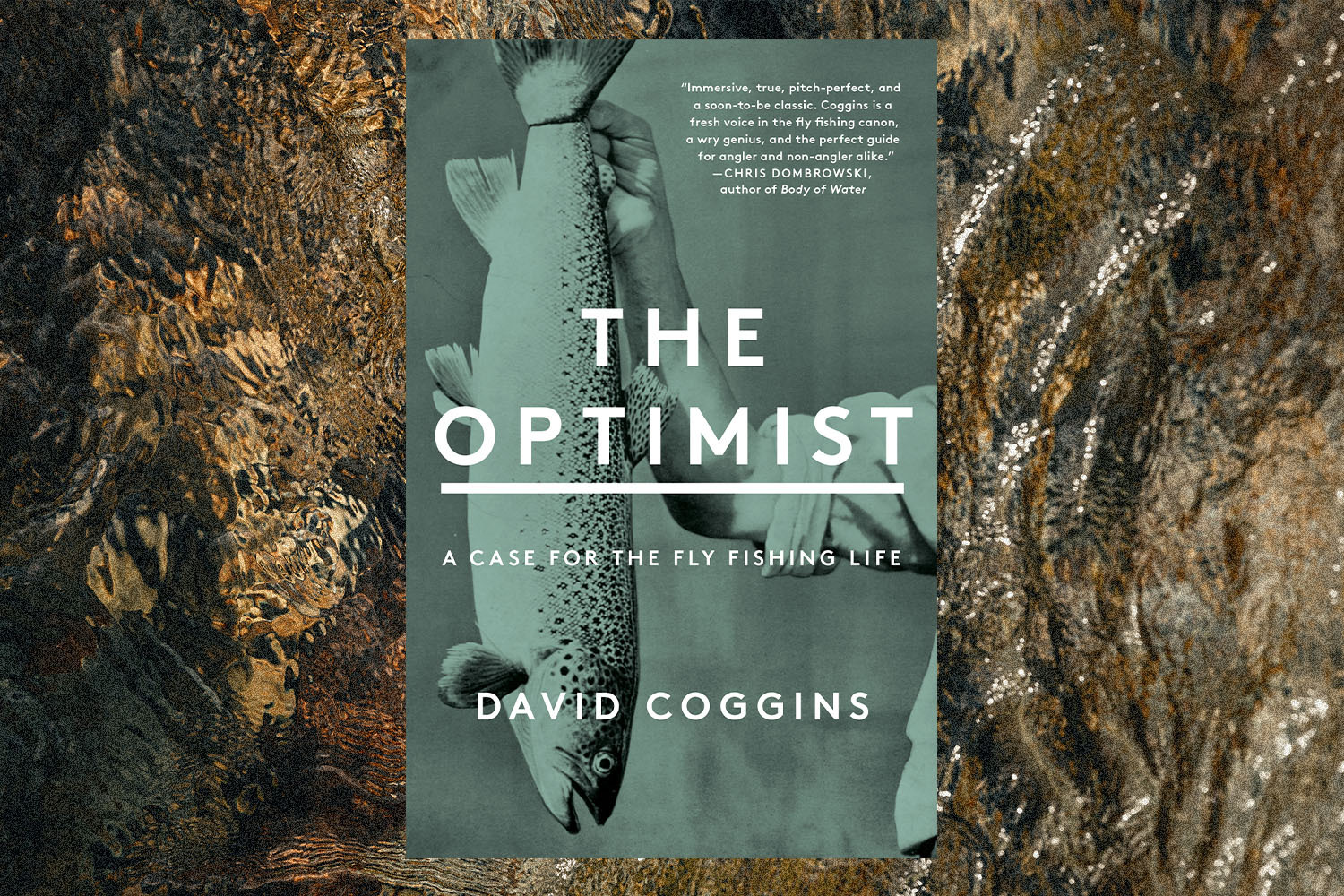
“It’s personal,” he says. “There’s elements of memoir, there’s elements of travel and obsession and my family to a certain extent, and people I care about and something I love. I hope that it can connect with people.”
But the personal is what makes The Optimist such a welcome addition to the part of your bookshelf dedicated to hobbies and sport. You can pick up little tips reading Coggins; you might decide to book a trip to Maine because you want to try out the pizza spot he mentions and then go fish for brook trout. But it’s his emotional connection to fishing that will make readers who don’t know the difference between dry flies and wet flies care, the little things he notices and the bonds he forges on his trips. Coggins understands that in order to write a good book on a topic that people are fanatical about, you have to keep the obsessives happy while appealing to the uninitiated. John Updike understood the same thing when writing about Ted Williams’s last game for the Boston Red Sox, which is why his 1960 New Yorker article “Hub Fans Bid Kid Adieu” is considered one of greatest things ever written about baseball.
While Coggins doesn’t pay as much attention to America’s Pastime as he once did, another great New Yorker writer served as an influence on Coggins for The Optimist.
“My favorite baseball writer is Roger Angell and by a factor of a thousand,” he says of the man who has long covered the sport for the magazine. But there are more than a few connections one could make between baseball and fly fishing, and Angell’s influence hovers over The Optimist. “I think what both baseball and fly fishing have in common is that there a lot of time to wait and there’s a lot of time where nothing is happening, and different people deal with that downtime in different ways.”
Coggins, both the man and the writer, ultimately fits somewhere between a new journalist-type from the 1960s and an aesthete from the 1890s. He notices everything and makes it all sound interesting and bigger than it should be, like when he writes about the Volvo wagon he turned into his fishing car, and its quote-unquote Storage System that only he seems to understand. He takes note of every little thing in the car — which might seem like an editor’s nightmare — but once you know he has a Filson jacket, CD copy of Tom Petty’s Greatest Hits, YETI cooler and a bunch of other stuff, you arrive at a fuller picture of the man who drives the car, and the pursuit for which he intends it.
All these little details could lead one to believe that, on its surface, The Optimist is really a book about love and obsession with fly fishing. But there is also a calming effect I felt reading it. I haven’t been out fishing for a year. I miss it. I’ll get out soon enough, but when I do, I’ll be thinking of Coggins and his book. I’ll think about how there is so much damn noise in the world, and we should all find ways to tune if out. That, more than anything, is what The Optimist is about. It’s a book about fishing, yes; but it’s more about turning on, tuning in and dropping out of the daily grind, if even for a weekend.
“I think fishing is a pretty natural thing to do,” Coggins says. “People have been doing it for thousands of years, but to make it part of your life now, you have to make an effort to do that. And I think once you do do that, you are in a better and more natural place.”
The Charge will help you move better, think clearer and stay in the game longer. Subscribe to our wellness newsletter today.
